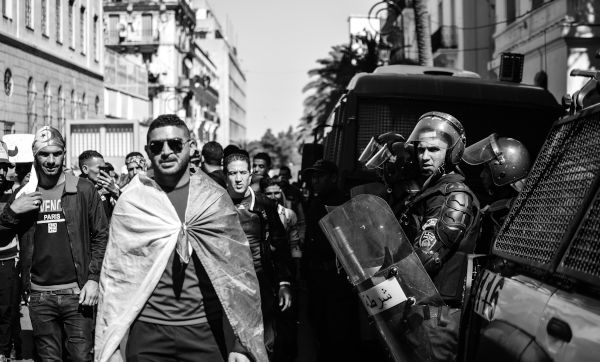Projects
Our research: approaches and industries
NOIS is an inter-disciplinary research centre whose members come from many different scientific fields. This is an important asset for the centre that offers to its community a place in which members can approach the study of networks from many different perspectives and methodological approaches. NOIS members are developing their research in several industries, among which logistics and transportations, automotive and mobility, technology and telecommunication, tourism and culture.

Ongoing projects

Similarity in the governance of strong ties and innovation performance: Insights from the automotive supply-chain
Team: Stefano Li Pira, Anna Moretti, Francesco Zirpoli
In an increasingly inter-connected world in which firms and supply-chains are re-organizing in larger networks and ecosystems interorganizational relationships (IORs) are of key relevance for innovation outcomes, especially in those industries characterized by technological uncertainty and heterogeneous knowledge. However, the effectiveness of IORs for innovation is highly dependent on how relationships are governed. Building on a pluralistic perspective (Lumineau and Oliveira, 2018; Shipilov et al., 2014), we extend previous literature on relational governance arrangements by testing the relationship between similarity in governing strong ties and innovation performance.

A pluralistic perspective on network effectiveness in the cultural tourism industry
Coordinator: Anna Moretti
Innovation and creativity are critical factors for cultural and tourism industries, but they became vital after the emergency situation and radical changes that affected the cultural and tourism system after the covid-19 pandemic. Many studies highlighted how the innovation and creativity performance of cultural and tourism organizations is highly dependent on the network of relationships they are embedded in, from a destination perspective. However, recent literature reviews on interorganizational relationships (IORs) research have identified how this stream of research has been characterized by some underlying assumptions that affected significantly our thorough understanding of the phenomenon. This research project follows this stream of literature providing an original study about the governance and coordination mechanisms that may help destinations in effectively reaching creativity and innovation goals for cultural and tourism organizations.

A technological standard for mobility tracing, in the making: Historical ethnography of a European network
Coordinator: Giovanni Favero
The project will reconstruct the emergence in Europe of a standard infrastructure for RFID tracing of urban passengers mobility, identifying its effects on the data that can be collected and their possible uses. The contactless electronic ticketing system in use today in most European cities was developed by means of a series of EU-financed projects submitted by the CLUB (ContactLess User Board) consortium established in 1993 by Venice ACTV, Paris RATP, Lisbon OTL, the city of Brussels and the Konstanz Landkreis, in collaboration with private companies (Innovatron), which became in 2003 the Calypso Network Association (https://www.calypsonet-asso.org/content/european-project). Following some controversies concerning privacy issues, compliant statistical procedures were adopted to allow the elaboration of data resulting from tracing records, but the use of such data for mobility governance is still in its beginnings.
Historical and ethnographic methods will be used to describe the process of standard construction and its framing effects on data and their users.

Data-driven and risk-based inventory management
Team: Daniela Favaretto, Alessandro Marin, Raffaele Pesenti, Marco Tolotti
Our research activity aims to study the problem of the lot sizing and the strategic positioning by considering stochastic demand and lead times. Specifically, we develop models, algorithms, and software to optimally set reorder policies suitable to react dynamically to changes in demand and other figures. Service levels are derived as tail risk measures to ensure fulfillment of realized demand with a predetermined probability. Finally, we use our techniques to theoretically validate and contextualize some recent heuristics developed by practice and widely implemented through modern ERP systems.

The network contract: functioning and performance implications
Team: Anna Cabigiosu, Francesca Checchinato, Anna Comacchio, Vladi Finotto, Christine Mauracher, Anna Moretti, Antonio Proto, Chiara Saccon
This study focuses on the network contract introduced in Italy in 2009. The aim is to develop specific tools to assess the performance implications of being part of such networks and to understand if and till what extent network contracts affect firms’ performance. Finally the study analyzes the key features of most performing networks and how they function.

Efficient methods for machine learning and artificial neural networks using big data
Team: Giovanni Fasano, Marco Corazza, Francesco Mason
Artificial Intelligence methods and models are studied, for the analysis and the treatment of large amounts of data, in order to reconstruct phenomena with unknown trends through a series of instances associated with the latter.

Reliable optimization methods for information spreading and sustainability: analysis of terrorism models
Team: Giovanni Fasano, Daniela Favaretto, Andrea Ellero
We analyze both statistical and determinist group behavioral models, in order to study mass behavioral policies, subject to specific rules of information exchange among individuals. Special attention is paid to the models of diffusion for terrorism.

New paradigms for infinite/infinitesimal calculus using 'grossone': theory, methods and case studies
Coordinator: Giovanni Fasano
The project deals with studying the impact of a recent methodology of calculus, associated with the use of the novel numeral 'grossone'. This project has the double task of reformulating some classical Mathematical Programming approaches, from a theoretical point of view, as well as more efficiently solving application problems.

Networks in tourism
An article (in Italian) by Martini Barzolai and Moretti about the Italian networks in the tourism field, based on the data gathered through the Observatory of Intre-firm Networks 2019 and published on the XXIII Rapporto sul Turismo Italiano.
